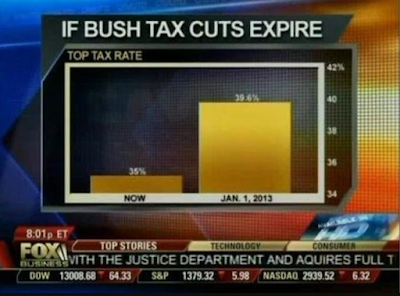Can a society be both free and fair?
A lot of people from all walks of life seem to be upset these days that our society isn't more fair. They believe we should live in the United States of Even-Steven, where everyone has an equal outcome regardless of their talents, abilities, background, or even effort. In a way this is kind of naive and infantile, as I noted in my previous posting on White Guilt. Unfairness is the norm in the world, and only obnoxious two-year-olds throw temper tantrums and scream 'It's not fair!" as if some fundamental law of the universe has been violated.
At the same time, some people - often the same people as those who protest unfairness - want unlimited freedom. Freedom to say what they want, do what they want, and be what they want. I mean, that's only fair, right? But freedom and fairness are often in direct conflict with one another. You can't have unlimited freedom with total fairness and vice-versa.
Such is the schizophrenic nature of our society. And this goes back to the founding of our country. The Declaration of Independence which, although, not a legally binding document, sets forth the goals and aspirations of our Republic, holds that these truths are self-evident that all men are created equal. The irony is, of course, that the people who wrote those words own slaves at the time.
Does this make them hypocrites who should be stricken from the history books? Or does their aspiration to freedom begin in a society where freedom was far more limited? Did they perhaps realize they were setting their republic on the course that it has? Good questions. I don't have answers.
After our false start as a Confederation, we adopted a Constitution which codified inequality based on race. Black people were deemed to be worth 3/5 that of a white person, but only for purposes of counting the number of people necessary for congressional representation. Of course, they wouldn't have the right to vote. Neither would women. Or the poor. Freedom and fairness were far more limited back then.
So here you have these founding fathers blathering on about freedoms, and at the same time enslaving people. And some people want to erase this part of our history by tearing down statues and obliterate the names of those who wrote these documents. But I think that misses the point. Granted, we should not be lauding the names and images of Confederate Raiders, who basically were little more than terrorists. And even those distinguished generals for the Lost Cause were fighting for a cause that was wrong.
But we have to look at this dichotomy between freedom and fairness in terms of our national history as well as the course of human events. The American Revolution did not occur in a vacuum, but was presaged by the thinkers of the Renaissance and the enlightenment, such as Rousseau, who postulated that men had inalienable rights. Of course they were talking about men, not women. Women were still property of course!
But over the years we've fine-tuned this tension between our two idealistic goals of freedom and fairness. The problem with these two ideals is that they conflict squarely with one another. If you are free to do with as you please with your possessions, then you can leave your estate to your children or hand them generous sums of money, giving them an unfair advantage in life. This goes against the American concept of fair play, where every person has an equal opportunity to advance based on their merits.
There is no easy answer to any of this, despite what some people tell you. Some people, it seems, want fairness to mean that everyone has an equal outcome regardless of their capabilities, abilities, advantages, or even effort. Such a system rewards lack of effort and thus become a race to the bottom. It is the simple reason why communism never worked and why socialism struggles.
Over the years, we have tried to level the playing field to emphasize Fairness while still allowing for Freedom. We've enacted a progressive tax system which punishes those who make more money, to bring their income levels down to those who make less. We created a Gifts and Estates tax to prevent people from transferring enormous sums of wealth from one generation to the next, creating the family dynasties that strangle the economies of both Mexico and South Korea.
Of course, there is always pushback. Republicans value Freedom more than Fairness, and push for the abolition of what they call the "death tax," believing that a family should be allowed to pass on legacies between generations and create family dynasties. The problem with this model is it the guy who got there first and accumulated the most amount of land and wealth ends up owning everything.
Long before New York City was New York, it was New Amsterdam. The Dutch families who got here before the English laid claim to vast tracts of land. And that is why the proper society of 5th Avenue in the 1800's all had Dutch names. It's why we had not one, but two Roosevelts as President. Before the creation of the income tax, there was no limit as to how much wealth you could accumulate, and the person who got here first accumulated the most amount of wealth. And too bad for Johnny-come-lately.
All that has changed, of course, as we no longer talk about Dutch dynastic wealth. But of course, new dynasties were formed over the years. Industrialists of the late 1800s and early 1900s accumulated vast sums of wealth, most of which has dissipated today, in part because of the income tax, in part because of mathematical progression. However, a new generation of entrepreneurs are accumulating even more fantastic amounts of money, mostly in the valuations of their stock in their tech companies. Whether they can create family dynasties or not remains to be seen. But they do have a louder voice than the rest of us on how the country is to be run.
We've enacted many laws to try to push fairness to the forefront. Equal opportunity is one of these laws, and very controversial. Those who criticize this law claim that it pushes forward token individuals who have no qualifications for their jobs or place at University. Proponents argue that it's necessary in order to push people in positions of power so that in the future there is less discrimination.
The point is, we're trying. But try as we might, I think we'll never really resolve this conflict between Freedom and Fairness. Because when everything is completely fair, is it an ideal communist state, and there is very little in the way of freedom. Freedom comprises more than the ability to say and do what you want, but also freedom in the economic field. As I've noted before, freedom of speech sounds like a nice abstract concept, but the first thing a person does when they have freedom of speech is to stand on their soapbox complain about their taxes. Economic freedom is personal freedom and vice-versa.
Thus, the freedom to accumulate wealth is a fundamental freedom. And if you want to take this all back to the Black Lives Matter movement and the history of slavery in this country, it is this fundamental aspect of Freedom which is at stake. Abraham Lincoln probably said it best in that one of the fundamental horrors of slavery was it a man would toil and not benefit from any of his labor.
Not only was that unfair, it was not free. So in a way, Fairness and Freedom are tied together as part of the same concept. You cannot have Freedom without Fairness and you cannot have Fairness without Freedom. But you have too much of one or the other and you get neither.
It sounds nice - and speaks to the American spirit - to think that everything should be made 'fair' - but not only is that not possible in its entirety, every step toward fairness takes away from freedom. There has to be a middle-ground between absolute freedom and absolute fairness. We can't have both, or even one or the other. We have to compromise, as messy and "unfair" as that sounds.
And by the way, fairness is nowhere mentioned in the Constitution.
And by the way, fairness is nowhere mentioned in the Constitution.







